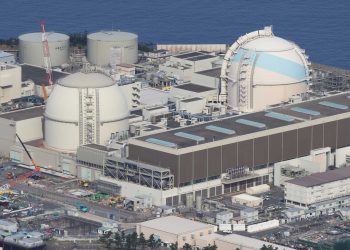,
Beijing (AFP): Two senior US delegations held direct talks Tuesday with officials from North Korea as a diplomatic drive to persuade the Stalinist regime to give up its nuclear weapons entered a crucial phase. Finance experts from the two nations met in Beijing to discuss a drawn-out dispute over US sanctions on the North that the cash-strapped nation has said must be resolved before it will consider surrendering its nuclear arms.
They met for three hours on the sidelines of six-nation talks aimed at convincing North Korea to disarm, which resumed only on Monday after a 13-month suspension caused by Pyongyang's objections to the sanctions.
Daniel Glaser, the US Treasury Department's deputy assistant secretary for terrorist financing and financial crimes, said in Beijing that discussions were scheduled to continue Wednesday at the North Korean embassy in the Chinese capital.
“We think these discussions are a good opportunity for us to have an initial exchange of views,” he said.
“If these talks are to be really productive it has to be a long-term process by which we all work to address the underlying concerns we have expressed in the past.”
The restart of the talks came after North Korea conducted its first-ever atomic test on October 9. Kim Jong-Il's regime celebrated the test as a major national achievement but the detonation triggered international condemnation.
As the financial teams huddled down in Beijing Tuesday, the chief US and North Korean envoys to the six-nation forum met separately for their first formal face-to-face encounter since the talks restarted.
But US envoy Christopher Hill said there was no breakthrough to report after a bilateral meeting with the North's representative.
“We don't have any breakthrough to report. We had a substantive discussion. We will meet again tomorrow,” he told reporters late Tuesday.
“I would say, without revealing elements of their positions, there was certainly a willingness to listen to some of our ideas,” he said.
But Hill added that the six-nation forum needed to push on.
“We do feel the real sense that our six-party process needs to do more than forming working groups and to talk about process,” he said.
“I think we need to engage in progress and find a way to move forward on our goal of denuclearization. I think we need to show some progress. I am not ready today to announce any, but I tell you we worked hard today.”
Japan's envoy said North Korea's stance remained “far apart” from that of its counterparts in the six-nation talks.
“Our basic stances remain far apart. At this point, I cannot say that the outlook is optimistic,” Kenichiro Sasae told reporters Tuesday night.
North Korea had returned to the forum in a defiant mood on Monday with its chief envoy Kim Kye-Gwan outlining a long list of demands he said must be met before it would consider scrapping its nuclear arms.
Under the US sanctions, 24 million dollars belonging to North Korean leader Kim Jong-Il and other members of his ruling elite have been frozen in a Macau bank over allegations of counterfeiting and money laundering.
Aside from unfreezing those funds, Kim said that United Nations sanctions imposed on North Korea in October after its test must also be lifted.
Kim further demanded that North Korea be given help in building a nuclear reactor for power needs and that the US policy of “hostility” against it must be dropped.
North Korea pulled out of the six-nation talks — which include the United States, China, Russia, South Korea and Japan — in November 2005 in protest at the US financial sanctions.
Two months earlier that year it had agreed to scrap its nuclear program in return for security guarantees and aid.
Many observers saw the North's decision to pull out as just a stalling tactic while it continued to develop its nuclear arsenal.
The United States had previously maintained the sanctions must not be brought into the six-party forum, insisting they were a law enforcement issue unrelated to the North's nuclear program.
But following the nuclear test, Washington agreed to discuss the sanctions in the forum.
China, which remains North Korea's closest ally despite being angered over the nuclear test and supporting the UN sanctions, on Tuesday called for all sides in this week's talks to show more patience.
“The meeting is only two days old. We suggest that participants in the talks have patience. Maybe they should do some marathon exercises to build up their endurance,” foreign ministry spokesman Qin Gang said.









